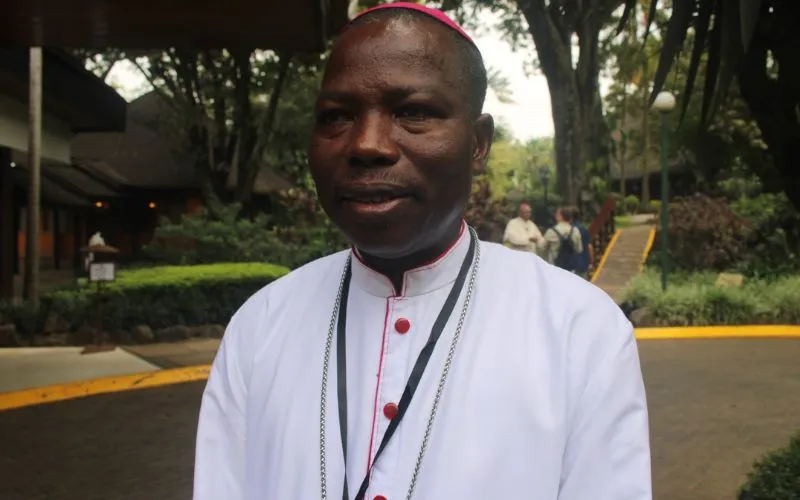Nairobi, 17 June, 2025 / 11:51 pm (ACI Africa).
Bishop Stephen Dami Mamza of Nigeria’s Catholic Diocese of Yola has appealed to African leaders to tap into Africa’s traditional values that he said foster religious freedom and peaceful coexistence on the continent.
Speaking at a panel discussion during the first-ever International Religious Freedom (IRF) Summit in Africa realized in Kenya’s capital city, Nairobi, Bishop Mamza highlighted Africa’s “deep spirituality” and the unity in diversity of the cultures as particularly inspirational.
“This summit has come at the right time, the time that we truly need, and it is my hope and prayer that it will be fruitful, and very soon it will begin to reproduce gradually,” the Nigerian Catholic Bishop, who represented members of the Symposium of Episcopal Conferences of Africa and Madagascar (SECAM) at the one-day Tuesday, June 17 Summit said.
 Bishop Stephen Dami Mamza of Nigeria’s Catholic Diocese of Yola. Credit: ACI Africa
Bishop Stephen Dami Mamza of Nigeria’s Catholic Diocese of Yola. Credit: ACI Africa
He identified some of the African traditional values that foster religious liberty, saying, “Africa is a very vast continent with deep spirituality, rich culture, and communal spirit. When you talk about religious freedom in Africa … if you look at it from a traditional point of view, that has been there right from the beginning.”




 Bishop Stephen Dami Mamza of Nigeria’s Catholic Diocese of Yola during a panel discussion at the International Religious Freedom (IRF) Summit in Nairobi, Kenya. Credit: ACI Africa
Bishop Stephen Dami Mamza of Nigeria’s Catholic Diocese of Yola during a panel discussion at the International Religious Freedom (IRF) Summit in Nairobi, Kenya. Credit: ACI Africa
 Bishop Stephen Dami Mamza of Nigeria’s Catholic Diocese of Yola. Credit: ACI Africa
Bishop Stephen Dami Mamza of Nigeria’s Catholic Diocese of Yola. Credit: ACI Africa Credit: ACI Africa
Credit: ACI Africa Credit: ACI Africa
Credit: ACI Africa Bishop Stephen Dami Mamza and John Cardinal Onaiyekan. Credit: ACI Africa
Bishop Stephen Dami Mamza and John Cardinal Onaiyekan. Credit: ACI Africa Credit: ACI Africa
Credit: ACI Africa


